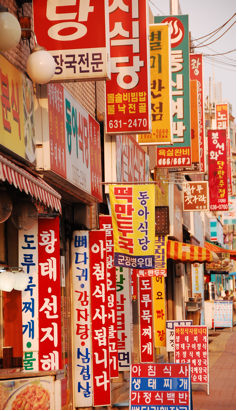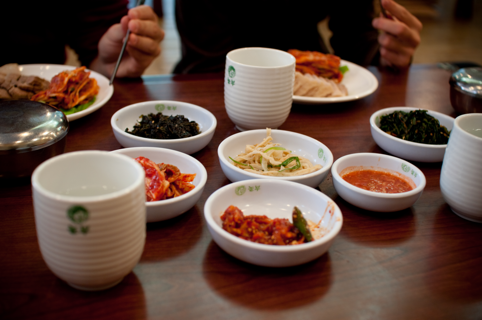Don't miss out on the best jobs!
Subscribe to HelpGoAbroad and weekly we will sent you an email with latest job posts. Provide your email address below
When it comes to welcoming visitors who want to live and work in South Korea, there are many ways in which the country can be very welcoming and open its doors to those from other countries, but there are also many ways in which moving there can be very challenging. The key to emigrating successfully to the country is to identify the challenges that you may encounter, and then to deal with those challenges so they become less of a factor in everyday life. Here are a few of the things that may trip you up during your first few months in South Korea, but with perseverance and determination, you can build a viable and exciting life in the country.
The Language And Script In South Korea
The language and script in the country are part of the homogenous culture of South Korea which has very little connection to other languages and writing styles. Learning South Korean is one of the most challenging languages to learn, so taking classes and studying before you leave for Korea is certainly a very good start. The real difficulty for English speakers is that the sentence structure and the order of the words are quite different, while the honorific system means that word endings can change depending on your relationship with the other person. However, the simple syllables and pronunciation means that learning the basics is fairly easy, but it can take a very long time to become proficient.
The script in South Korea is another challenge, and while some people do believe there are some links with Japanese, it is actually almost entirely different to any other script. Learning to read it is fairly simple as it is an alphabetic language, which is handy if you are heading off the main tourist track where signs are only to be found in Korean.
Adapting To The Country's Cuisine
Korean cuisine is one of the most attractive features for many people that move to South Korea, but for others it can be one of the most difficult things to adapt to. The dishes that are known internationally are Kimchi and Korean Barbecue, but there is a lot more to the food than that. The cuisine is naturally quite spicy, with bold flavors and spices used to help make simple ingredients such as rice and potatoes more interesting. There is a strong emphasis on vegetables and fresh ingredients in Korean cuisine, so embracing the cuisine when you move to the country can be a very healthy thing to do.
South Korea's Working Culture
One of the most difficult aspects of Korean culture to embrace is the long working hours, with the majority of people in the country regularly working over fifty hours a week, and most people having relatively few holidays. This can come as a shock for many people, who are used to around thirty days of holiday per year, and shorter working hours, so being prepared to put in the hard work will certainly help when it comes to building a relationship with your employers and colleagues. There are also perks for being a hard worker, with bosses generally rewarding good work with bonuses or parties for staff members.
Along with being ready to work hard, South Koreans also tend to party hard too, with the main cities in the country all being famous for their lively night life.
The History And Culture Of The Country
South Koreans are a very proud people, and with a country that has a long and impressive history it is worth bearing in mind that many people can display a rivalry towards other neighboring countries such as China and Japan. There is also a strong cultural emphasis on showing respect to your elders, which is not only shown in the honorific system within the Korean language, but also in the culinary etiquette where the eldest diner is usually served first. If you can embrace the culture and approach your relationship with South Koreans as a respectful visitor, then this will certainly help you to thrive in the country.
Accommodation
Most international people moving to South Korea will be doing so in order to work in one of the major cities, and one important thing to remember is that space is at a premium, and in most cases the apartments on offer will be small compared to western standards. Living economically and learning to make the most of the space you have available will certainly help you to adapt, while being aware of this will also help to prevent disappointment when you arrive. If your accommodation is being arranged by your employer, you can ask for photos before you travel, or in some cases they can arrange shared accommodation which will generally provide a larger space, which is shared with other employees.
Work Permits And Visas
In most cases the work permits will be arranged through your employer if you already have a job before arriving in South Korea, however it is also possible to arrange these yourself without arranging a job in advance. There are options for working holiday visas in the country for some people, while those looking to teach English are also looked upon favorably by the authorities. Otherwise, most people will find that they have to have a specialist skill or trade in order to be given a working visa to move to South Korea.
Sign in to publish a comment



Be the first to comment on this post.